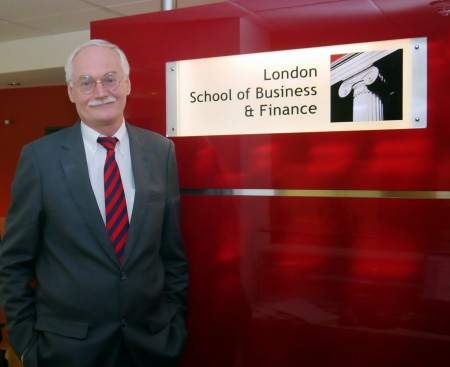
One of the UK’s largest private colleges has had its Tier 4 sponsorship licence revoked.
The London School of Business and Finance (LSBF) lost its sponsorship licence, which allows them to recruit non-EU students, after the institution failed its annual compliance check, which all Tier 4 visa sponsors are subjected to.
A Home Office spokesperson said: “Businesses and educational institutions that benefit from the UK immigration system must ensure they have robust compliance systems in place or risk losing their privilege to sponsor workers and students.”
It’s not the first time the LSBF, the third largest private college recipient of funding via the publicly funded Student Loans Company, has fallen foul of a Tier 4 assessment. In 2014, the institution was one of 57 private college to have its licence suspended. On that occasion the licence was reinstated.
Fast-forward to 1 September 2015 and the institution, which is part of Global University Systems [GUS], an international network of higher-education institutions, once again had its Tier 4 sponsorship licence suspended prohibiting it from sponsoring new students or workers from outside of the European Union. Following suspension the LSBF had the opportunity to make further submissions. It is presumably after the Home Office received these submissions and had time to consider them that they then decided to take things further and revoke the Tier 4 sponsorship licence.
This time, with its licence revoked, the LSBF is likely to have to wait two years before it can even apply to sponsor international students on Tier 4 visas again.
At the time of writing we have no news on the LSBF Tier 2 sponsorship licence to employ skilled workers from outside the EU that was also suspended from September 2015.
According to LSBF’s CEO and rector, Maurits van Rooijen, the Home Office told the institution its licence, which was suspended in September, was revoked because it was a “fraction of a percentage” above the 10% upper limit on visa refusals an institution is allowed in order to continue operating.
Not only has the LSBF lost its Tier 4 sponsorship licence to sponsor non-EU students, hundreds of the students currently studying at the institution have been told they have to leave the UK by the end of March. Van Rooijen confirmed that ‘a few hundred’ students had been affected by the decision.
The majority are on professional qualification courses, with a smaller number – under 100 – on a one-year postgraduate programme or in the final year of an undergraduate degree programme, and four students on the second year of their degree.
Curtailment letters issued by the Home Office inform students that “there is no evidence that you have made a fresh application for entry clearance, leave to enter or leave to remain in the United Kingdom in any capacity”, the BBC reported.
“It is not considered that the circumstances in your case are such that discretion should be exercised in your favour,” it continues.
“The secretary of state has therefore decided to curtail your leave to enter or remain.”
Van Roojien said that LSBF will try to ensure that as many students as possible are able to complete their studies before leaving the country.
“What we have agreed to do is to intensify and accelerate the teaching programme, so that they can complete their degree programmes,” he said.
Students will then be able to sit exams and complete their dissertations in their home country, he added.
In addition, students enrolled on accountancy programmes (which make up the majority of those affected) will be able to continue their studies either at another institution operated by Global University Systems, which owns LSBF, or through online delivery.
Van Roojien explained that LSBF was “surprised” by the suspension, and that its own independent auditor’s review had contradicted the Home Office’s findings that LSBF had breached the visa refusal threshold.
The LSBF said it didn’t want to get into ‘a public argument’ about the situation because it’s an argument they can’t win and they’ll just have to accept the decision. The institution described the decision to revoke their licence as ‘annoying and sad’, but added that it won’t do any significant damage to the LSBF’s finances. Presumably the LSBF does not wish to go ahead with a legal challenge via Judicial Review.
While the LSBF losing its licence does not have a direct impact on any other Tier 4 licence holders operated by GUS, Home Office guidance notes state: “When considering any institution’s suitability to hold a Tier 4 licence, UK visa and immigration (UKVI) services will consider whether any key personnel and individuals involved in the day-to-day running have complied with the Immigration Rules and sponsor guidance in the past.”
The National Union of Students says the college’s plans to “squash” courses into a shorter timeframe or to move students to institutions in France or Italy are not good enough and called for better protection for international students facing course changes and closures.
NUS spokesman Mostafa Rajaai said international students too often faced “unfair and unjust treatment”.
“The government cannot treat international students the way it does and expect the UK to remain a desirable destination for prospective students,” said Mr Rajaai.










